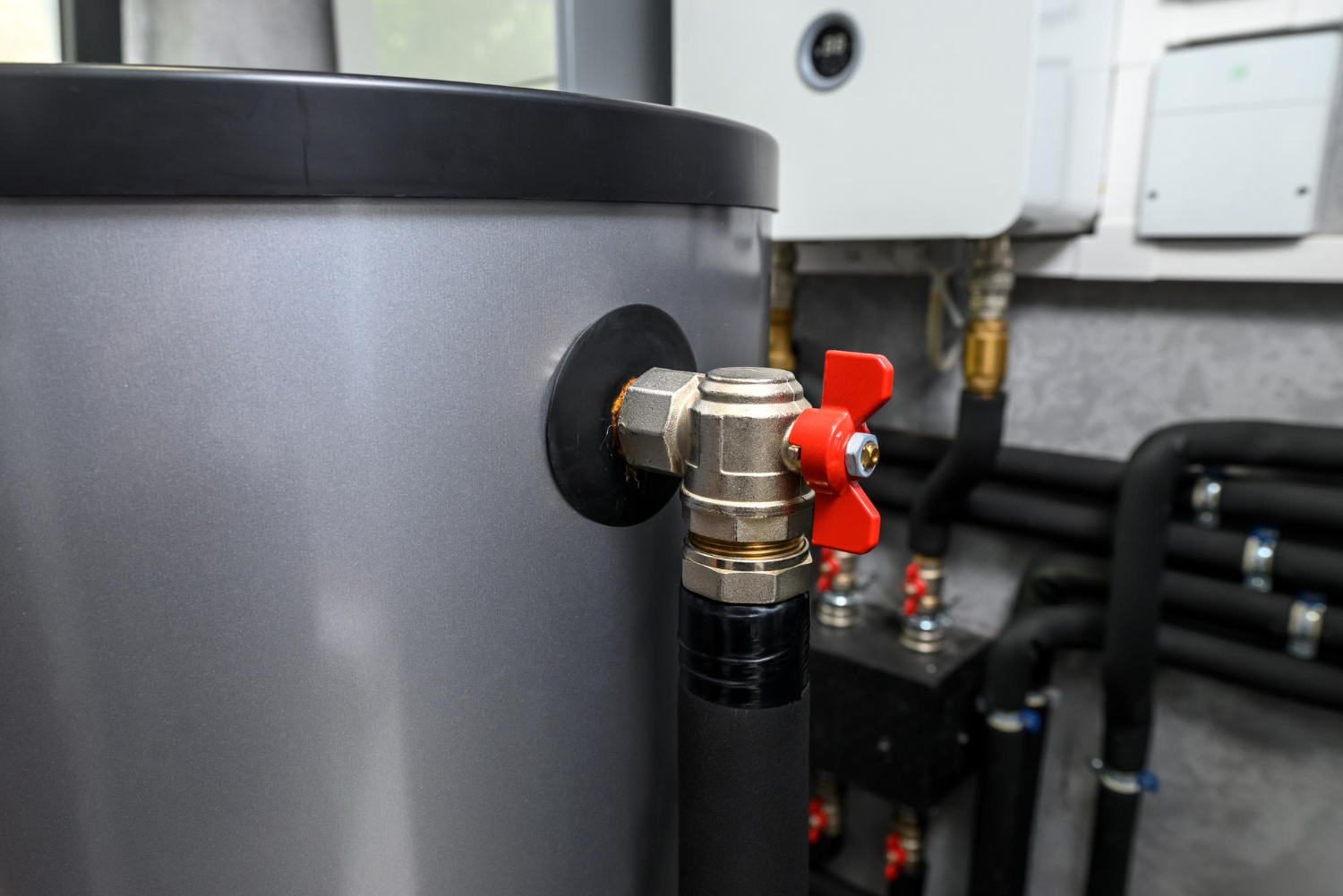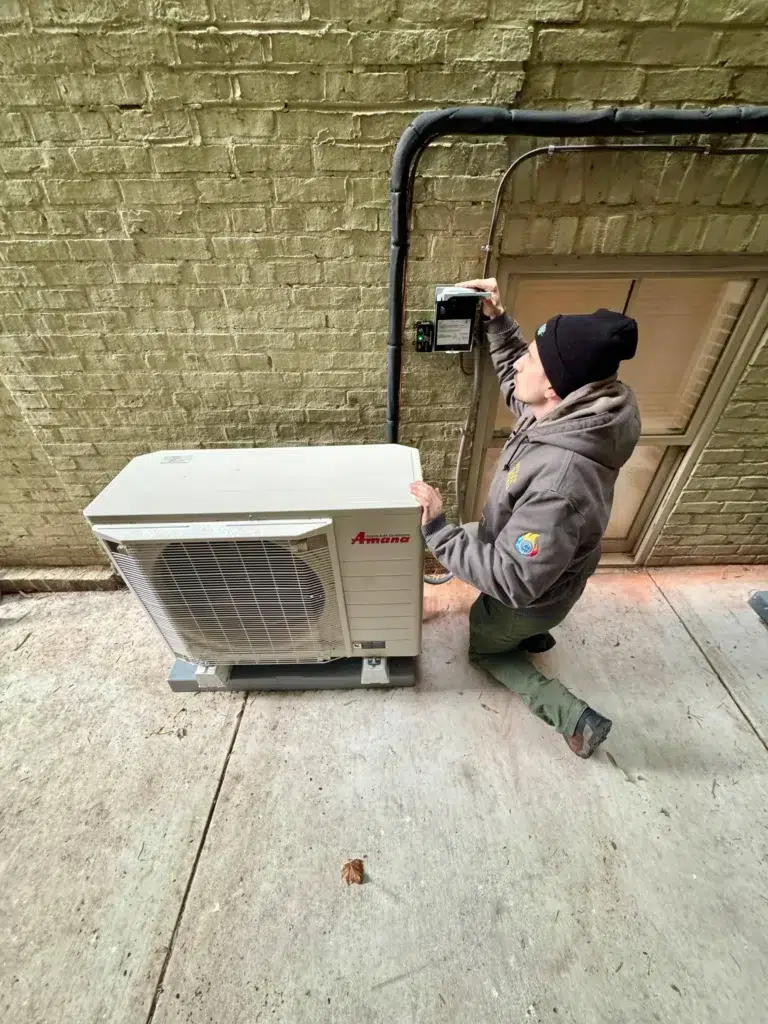When temperatures drop in Baltimore and Columbia, a working heating system isn’t just a comfort. It’s something you count on every day. For homes that rely on a boiler, getting ready for cold weather starts well before the first frost.
Boilers tend to run quietly in the background most of the year, which makes it easy to forget about them until something goes wrong. Waiting until the cold is already here can mean big headaches if a problem pops up. Fall is the best time to check your system and schedule boiler services if you notice anything out of place. Getting ahead of problems now helps you avoid last-minute stress.
Here’s what is usually checked when helping homeowners prep boilers for the colder months in Maryland.
Check the Thermostat and Boiler Controls
Start with the thermostat. If it’s not responding, reading the wrong temperature, or switching on too late, the problem might not be your boiler after all—it could be the controls. Make sure your thermostat batteries are good if it isn’t hardwired, and double-check that it’s set for cooler weather.
Take a quick look at your boiler’s control settings. Watch for lights that blink for no reason, strange codes, or buttons that don’t work. If your system powers up but quickly shuts down, it might have a control board or sensor problem.
Homeowners who’ve upgraded to smart thermostats often have better temperature control and can cut back on wasted energy. Just make sure your model matches your boiler and is set up before cold weather really sets in. With the right pairing, you can spot trouble or fix settings from your phone, which is handy during busy fall weeks.
Look for Leaks, Noises, or Cold Spots
As cooler days start creeping in around Baltimore, last winter’s little issues might pop up again. Take a look around the base of your boiler for any water. Even a slow drip points to a leak, worn-out seal, or changes in pressure.
Odd noises—like banging, whistling, or gurgling—shouldn’t be ignored. These are clues your boiler is struggling, maybe with trapped air, limescale buildup, or failing parts. No matter the sound, most grow worse if ignored.
Watch how each room feels as the weather cools. If some spaces are much colder than others, or heat just doesn’t reach certain spots, your system may not be balanced or moving hot water evenly. Uneven heating can be fixed, but waiting until things go wrong only causes headaches once the temperatures really drop.
Don’t Skip a Professional Inspection
Schedule a full checkup in the fall while appointments are easy to get and before every technician is booked solid. A seasonal inspection gives you a chance to catch little problems before your boiler faces the hardest weeks of winter.
Professionals go beyond the basics, checking safety controls, system pressure, fuel supply, and looking for hidden leaks or mineral buildup inside the unit. Even if your system seemed all-right last spring, things like seals or pressure gauges can change with months off.
A regular annual inspection is the best way to avoid surprise repairs as winter approaches. An up-to-date boiler runs more efficiently, saves fuel, and often lasts longer, so you get reliable warmth all season.
Complete Climate Services recommends yearly boiler services for homes in Baltimore and Columbia. Technicians check for leaks, worn parts, and safety faults while making sure your controls and settings match your heating needs.
Bleed Radiators and Balance the System
If you have radiators, bleed them to get rid of air that sneaks in during the year. When air’s trapped, you’ll notice the top of the radiator feels cold while the bottom stays warm. This simple fix—done before your boiler runs non-stop—helps improve comfort fast.
Another smart move is to balance the system. Radiators farther from the boiler often get left out during the first chilly nights. A pro can adjust valves so heat flows evenly to each room, keeping comfort levels steady everywhere.
If you notice you’re turning the thermostat up just to warm cold rooms, or if the same trouble spots keep coming up every year, balancing and bleeding could be just what your boiler needs.
Know When It’s Time to Repair or Replace
Boilers in Baltimore homes that are 15 years or older often begin to show their age. At some point, regular tune-ups might not keep up with wear and tear. Spotting the difference between a quick fix and a system on its last legs saves you stress when winter is in full swing.
Warning signs to watch for:
– Repeated system lockouts or shut-downs
– Slow warm-up, even after regular service
– Utility bills that rise without more use
– New or repeated leaks
When these pop up, it may be smart to start asking about replacement before you are left in the cold. A technician will review how your boiler handles daily work and help you see what to expect, whether it’s a minor part swap or a full upgrade.
Keep Your Heat Reliable All Season Long
Boiler problems always seem to show up when you want them least. Checking your system early in fall gives you time to tackle repairs and adjustments before Baltimore and Columbia get hit with true winter chill.
A little early effort goes a long way. Have your boiler checked, clear the air from radiators, look for leaks, and update those controls before the season shifts for real. With regular maintenance and boiler services, you’ll keep your system running strong, your home warm, and your stress low from the first cold snap through spring.
Frequently Asked Questions
What temperature should I set my boiler to in the winter?
For most homes, a boiler setting between 120 and 140 degrees works well. Below that, the heat may feel weak, while higher temps can waste energy. Ask a technician to help you choose the right setting for your needs.
Why do my radiators feel hot at the bottom but cold at the top?
This is a sign of trapped air in the radiator. Bleeding it lets out the air and should restore even heat across the unit.
How often should a boiler be serviced?
Once a year is best, even if things seem okay. Annual boiler services catch little problems before they turn serious.
Is it normal for a boiler to make noise?
A gentle hum is expected. If you hear banging, whistling, or loud clanking, that could mean there’s pressure trouble, blockages, or worn-out parts.
Do I need to turn off my boiler in the fall before checking it?
No, but let it cool down before getting close to it or touching parts. It’s safest to wait until it’s completely off and cool to the touch.
A boiler check before the cold sets in can help catch little issues before they turn into major problems. Cooler Baltimore nights will be here soon, and older homes around Columbia often need extra attention this time of year. Staying ahead keeps things running smooth and steady all winter. Let us help keep your heat working like it should with expert boiler services. Contact Complete Climate Services now to schedule your tune-up before temperatures drop for good.


